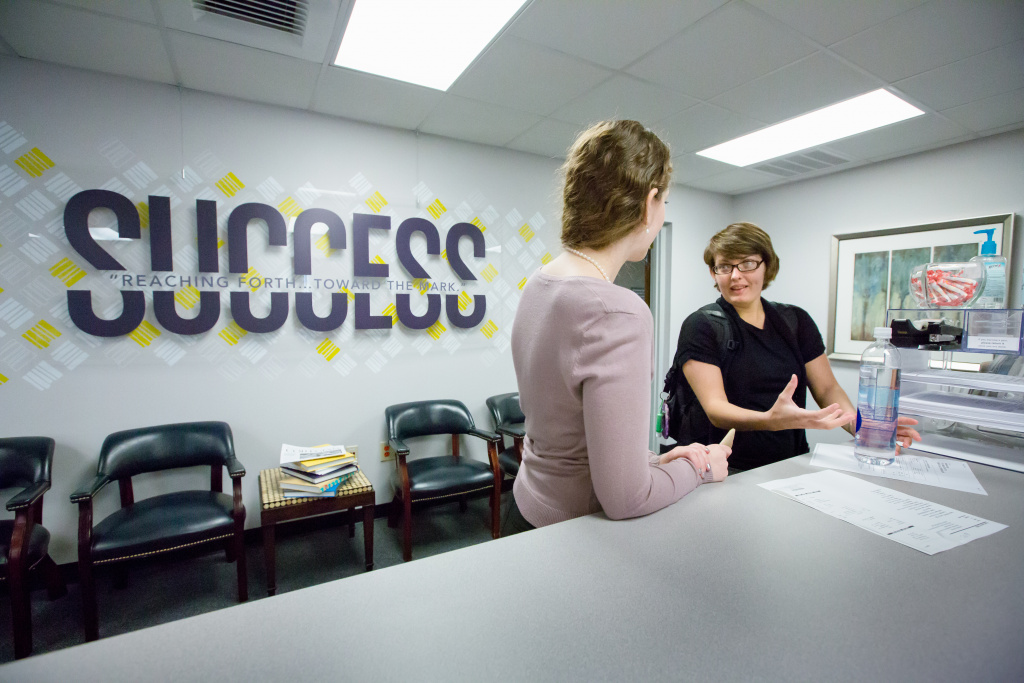You’ve been thinking you might need to change your major for a while. But you’re scared you might be overreacting. Everybody struggles with their major, right?
Yes, but if you recognize these signs in yourself, you probably want to reconsider your major choice.
You have poor grades in your major classes
“From now on your major classes will challenge you, but don’t worry. You’re a [fill in the blank] major, and this is your passion, right? You’ll be fine.”
You still remember when your advisor declared this sort of blessing over you your freshman year. A few semesters later, you’re now wishing that were true.
You’ve studied for hours. You’ve looked for help. You’ve struggled hard. But even after killing yourself preparing for tests and projects, you’re still getting terrible grades. Why?
Mr. Derrick Davis, the University’s former transition advisor, says that “if your GPA is taking a dip, it may be a sign that [your major] is not the path God has called for you to take.”
Ask yourself if your natural abilities and talents fit well with your current major. Maybe you’re not meant to be in that major after all.
You dislike the practical experience related to your major
Imagine you finally get your degree in early childhood education, only to later discover that working with little kids drives you nuts. Wouldn’t it be awful to hate your profession?
According to Dr. Bruce Rose, division chair of English Language and Literature and advisor to many English majors, “disliking practical experiences related to [your program]” is a big warning sign that you’re probably in the wrong major.
And this goes for everyone. If you’re a computer engineering student, but you realize you hate working with computers, then you’re probably not meant for that field. Or as Davis says, “Perhaps you don’t see yourself doing that type of work in the long-run.”
But don’t confuse dislike with frustration. I tell people that although I enjoy writing, the process is often a love/hate relationship. Feeling frustrated when you’re coding, practicing, teaching, or writing is normal. However, always hating what you’re doing is not.
You keep focusing on other majors
On a sunny day, you and your good friend are sipping iced coffee outside. Your conversation quickly turns to academics and your majors. And despite your nods and smiles, while your friend chatters nonstop about their major classes, you burn with jealousy on the inside.
“How can they be so happy with their major? I wish my classes were as cool as theirs,” you think to yourself.
The next day you pick up the majors catalogue to check out what other majors are like. You scan the course requirements and descriptions of other majors. You insist you’re not, but you’re almost on a quest to find another major.
Perhaps you don’t daydream about other majors, but you don’t care for your own major. You think the classes are boring. You don’t like them.
“The first sign that you may be in the wrong major is that you aren’t enjoying the classes in your major,” Davis says. He also suggests that if you don’t like your major courses, “chances are there is another one you might be more interested in.”
You felt pressured into choosing a major
What’s your name? Where are you from? What’s your major?—those three questions pestered you during your first semester. These questions must’ve been more annoying than normal if you hadn’t declared a major already.
Months later, you still didn’t know what to major in. But people kept asking that question. So although you weren’t super sure, you went ahead and picked a major.
But maybe this wasn’t your case.
Parents can also pressure us into making decisions like choosing a major. Maybe you come from a family of accountants, and growing up, accounting was the expected choice when you got to college.
Or maybe it was peer pressure. At my high school, teachers and students often praised seniors who had chosen engineering and finance-related majors. Those of us going into the humanities often felt left out.
If you want to change your major, Davis suggests going to the Academic Resource Center for help. “If in doubt, come see the transition advisor! We have fantastic resources at our disposal, like an interest assessment, that are available to all students,” he said.








